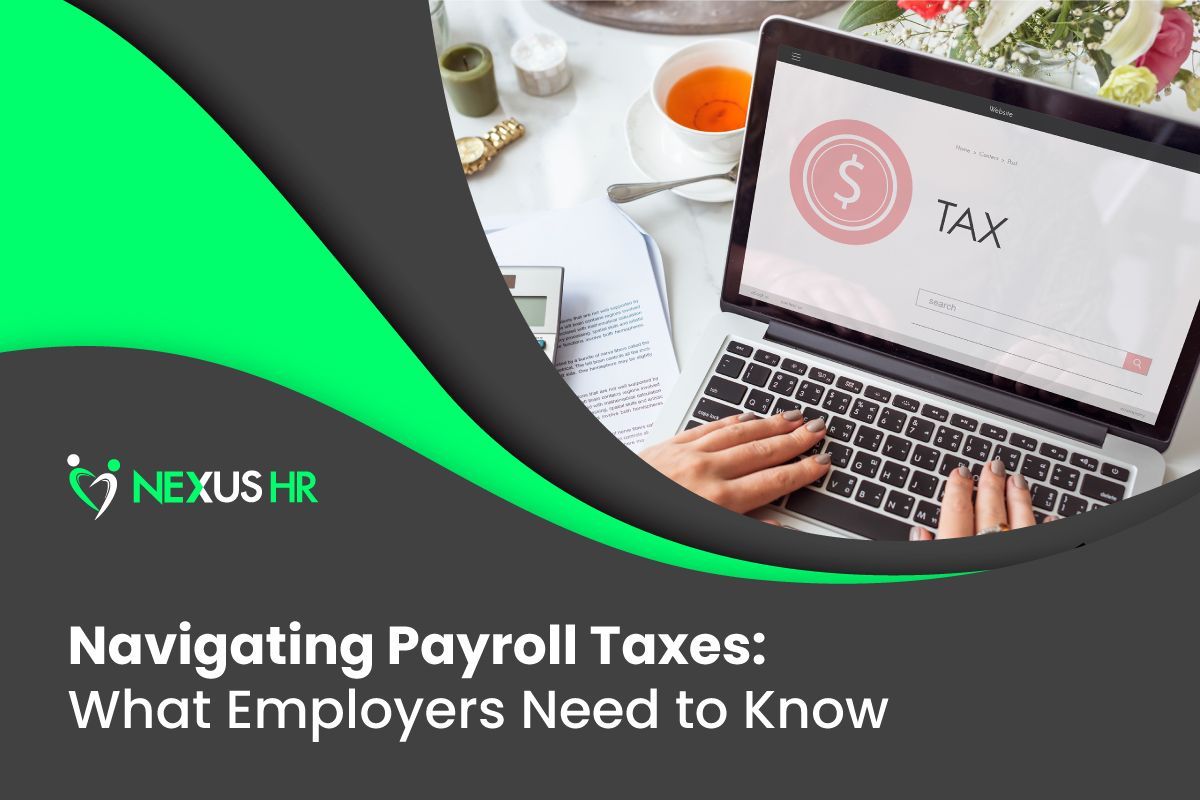Get in touch
877-922-5867
Info@Nexushr.com
877-922-5867
How to Tackle Employee Benefits for Remote Workers
Hiring remote employees provides advantages for both the company and the employee. As the popularity of remote work grows, employers are rethinking their current benefit packages to reflect the needs of remote employees. Now, organizations face the challenge of structuring flexible benefits for employees wherever they choose to work.
Employees who relocated during the pandemic have suddenly found themselves unable to find in-network providers. A one-size-fits-all leave policy may not work for a distributed workforce since different states have different policies. Job applicants for a remote position frequently ask whether the pay is fixed or adjusted to geographic location, and more often than not, recruiters don't have an answer.
If you're thinking about hiring remote employees but don't know how to manage or administer a well-rounded benefits package, this guide is for you.
Promote Open Communication

Offering a remote work setup provides several competitive advantages when attracting talent, but companies need to track employees' work locations for payroll tax compliance. In the middle of the pandemic, many employees relocated out of state and failed to inform HR. This lack of communication can cause employers to accidentally fail to comply with tax obligations and risk penalties during a government audit.
At the same time, moving to another state may limit existing benefits and work perks such as insurance coverage, gym membership, and childcare support. To ensure employees can continue using their benefits, companies must encourage staff to communicate with HR if they plan to relocate to another state in order to adjust taxes and benefits accordingly.
Broaden Health Plan Networks
Review your current healthcare plans and check whether they benefit employees living in other states. If not, you can either move to an insurance company with national coverage or work with different insurance providers in each state where an employee lives.
Remote employees living in rural areas may have limited access to healthcare providers and services. If this happens, consider adding telemedicine coverage for routine and primary care. Remember that telemedicine coverage varies from state to state, and some states prohibit providing telemedicine across borders. In cases like this, employers can subsidize out-of-pocket fees or provide stipends.
Analyze Geographic Pay Policies
WorldatWork's Geographic Pay Policies Study reveals that 67% of remote employees expect their compensation to reflect their location. More employers are adjusting pay based on an employee's location. Of those with existing geographic pay policies, 41% pay differentials as a premium, and 33% create a separate base pay structure for different geographic locations. In addition, 55% of organizations use city or metro areas to base geographical pay differentials.
Remote work is here to stay, and employers need to respond with a fair and transparent geographic pay policy to remain competitive. Meanwhile, those who don't adapt may suffer from high attrition rates.
Learn Local Leave and PTO Laws

Different states have different laws on paid time off. Leave duration, use requirements, accrual policies, and unused PTO payout upon separation vary as well. Understanding state laws where your remote employees work is essential and will affect how you structure your leave and PTO policies.
Typically, leave laws apply where an employee physically works. However, this is not an all-encompassing rule. The
Family Medical Leave Act (FMLA), for example, requires an employee's worksite to have at least 50 employees within a 75-mile radius. Under the FMLA, an employee's home is not considered a worksite but defines worksite as "the office to which the employee reports and from which assignments are made." Therefore, FMLA eligibility depends on where the work is assigned and not where the employee physically works.
Additionally, an employee's state may have more favorable paid leave laws than another employee's state or your organization's office location. If you have remote employees, you will have to assess each situation individually when creating remote work benefits.
Adding Unique Remote Employee Benefits
The typical office work perks, such as free unlimited coffee and lunch, may not apply to a remote setup. Social interactions in the office naturally set micro mental breaks and reset the exhausted brain. Remote workers could spend days not talking to anyone and even forget to take mini mental breaks. Although remote employees have more flexibility with their time, the boundary between work and home life blurs for people who work in the same place they live, especially those with children.
Offer well-rounded benefits for remote employees that help them balance work and home life and reduce burnout. These benefits include childcare benefits, health and wellness subscriptions, meal home deliveries, free home cleaning services, and workstation support.
Simplify Benefits for Remote Employees

Managing a remote team and creating a comprehensive benefits package come with their own challenges that take time away from your core operations. Nexus HR can help you build an attractive pay and benefits package for remote employees no matter where they choose to work. As your full-service human resource partner, we take full ownership of any HR-related duties, including directly answering your employee's questions or issues about pay and compensation. From recruiting to benefits administration and onboarding, we handle every aspect of the employee lifecycle so that you can focus on growing your business.
Contact Nexus HR today and start building an attractive benefits package for your remote employees.











